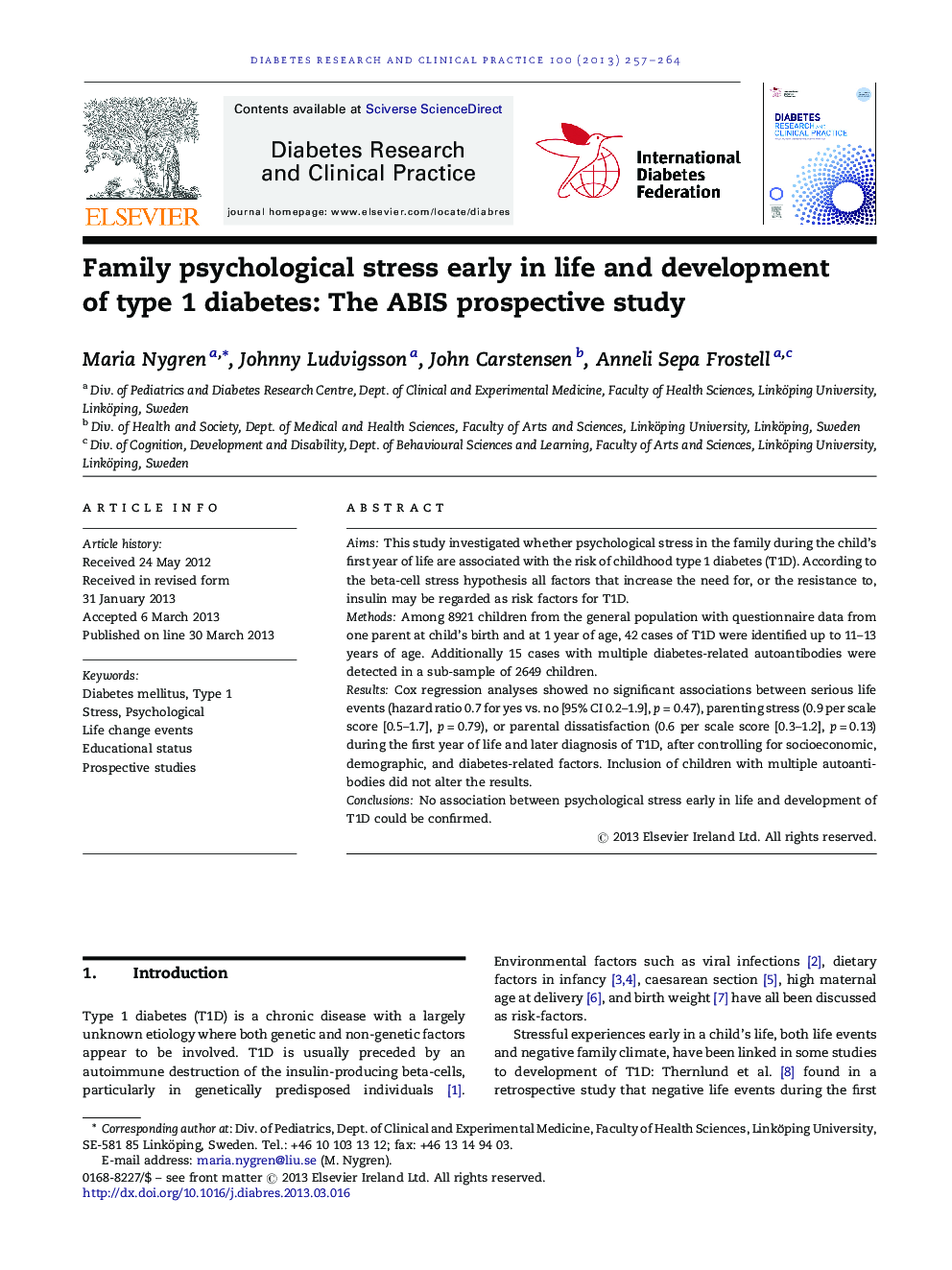| Article ID | Journal | Published Year | Pages | File Type |
|---|---|---|---|---|
| 2796830 | Diabetes Research and Clinical Practice | 2013 | 8 Pages |
AimsThis study investigated whether psychological stress in the family during the child's first year of life are associated with the risk of childhood type 1 diabetes (T1D). According to the beta-cell stress hypothesis all factors that increase the need for, or the resistance to, insulin may be regarded as risk factors for T1D.MethodsAmong 8921 children from the general population with questionnaire data from one parent at child's birth and at 1 year of age, 42 cases of T1D were identified up to 11–13 years of age. Additionally 15 cases with multiple diabetes-related autoantibodies were detected in a sub-sample of 2649 children.ResultsCox regression analyses showed no significant associations between serious life events (hazard ratio 0.7 for yes vs. no [95% CI 0.2–1.9], p = 0.47), parenting stress (0.9 per scale score [0.5–1.7], p = 0.79), or parental dissatisfaction (0.6 per scale score [0.3–1.2], p = 0.13) during the first year of life and later diagnosis of T1D, after controlling for socioeconomic, demographic, and diabetes-related factors. Inclusion of children with multiple autoantibodies did not alter the results.ConclusionsNo association between psychological stress early in life and development of T1D could be confirmed.
